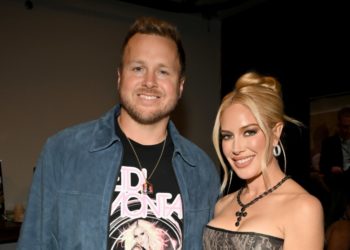Three years ago, on June 16, 2022, an unfamiliar man attended a church potluck at St. Stephen’s Episcopal Church near Birmingham, Ala. The man sat by himself and refused offers of food. As others were getting dessert, the man shot and killed three people.
Kathryn Laumer was at the potluck. She saw two of her friends get shot. First, Sharon Yeager screamed and went down. Then Laumer saw the man point the gun at Jane Pounds: “I can still see … the orange fire that came out of it and still smell the burned smell.” Looking at her friend, Laumer saw there “was no more Jane’s face.” Both women died. The third victim was Bart Rainey.
After the shooting, Laumer experienced intense and unrelenting flashbacks. She couldn’t sleep. In October 2022, after 15 years of sobriety, Laumer started drinking again. The alcohol helped temporarily, but the flashbacks came back with a vengeance when she sobered up. By January 2023, it had become too much.
On three separate occasions while intoxicated, Laumer bought a gun to kill herself. The first time she decided to call her therapist at the last minute. The second time her wife came home from work early. The third time she went to a hotel to avoid being interrupted. Laumer put the barrel to her head and pulled the trigger, but the gun was improperly loaded. (She is doing better these days. Laumer told me recently that she is recovering one day at a time with the support of her friends and family.)
Experiences of gun violence like Laumer’s are all too common. The number of mass shootings in the U.S. have risen sharply in recent years: from 273 in 2014 to 647 in 2022. And that second figure doesn’t even include the shooting at St. Stephen’s, because to meet the definition of a mass shooting, four people must be killed with a gun.
Nearly two-thirds of mass shooting survivors (63%) experience post-traumatic stress disorder. Austin Eubanks saw his best friend killed in a 1999 mass shooting at Columbine High School in Colorado. Nineteen years after the shooting, Eubanks told a reporter: “These are massive, massive traumas. It’s like an earthquake. It ripples.” During one week the next year, two survivors of the Parkland, Fla., mass shooting died by suicide, as did the father of a 6-year-old victim of the Sandy Hook killings.
Mass shooting survivors like Laumer need more ways to protect themselves against suicide. One innovative tool is already available in Colorado, Delaware, Utah, Virginia and Washington: “Donna’s Law” or the “Voluntary Do-Not-Sell List.” Anyone in those states can voluntarily and confidentially suspend their own ability to buy a gun. For example, when Laumer was sober, she could have protected herself against a future impulsive gun purchase while intoxicated and suicidal.
Suicide is often impulsive. Only 10% of people who survive a suicide attempt keep trying until they kill themselves. With a gun, there are few second chances. Delaying access to firearms by even a few days has been shown to reduce gun suicide without increasing suicide by other methods. Many people decide against killing themselves; others switch to a less lethal method and survive.
People want to protect themselves in this way. At a medical center just a few miles from Laumer’s church, 46% of patients receiving psychiatric care said they would sign up for Donna’s Law. Laumer would have signed up: “I would not have had to have gone through all that nor would my family. … As hard as this has been on me, it’s been extremely hard on my family and my loved ones.” Signing up is easy. Virginia allows for registration by mail. And in Utah, Laumer could have asked her therapist to send in the form for her. Colorado will have an electronic registration option if it can raise sufficient funds.
So why are these laws so rare? Politics and profit. Bipartisan bills to enact Donna’s Law were introduced in Alabama and in Congress before Laumer bought her guns. Opposition from the National Rifle Assn. defeated those two bills, as it has in many other states. The NRA wants everyone to be able to buy a gun easily, even people who don’t want to be able to buy a gun.
To be clear, this has nothing to do with the 2nd Amendment. Donna’s Law has no effect on gun owners or anyone else who chooses not to participate. A person who already has access to a gun obviously doesn’t need to buy another gun for a suicide attempt.
The NRA is protecting the gun industry, not gun owners. In fact, when a thousand gun owners were asked about Donna’s Law, a majority supported it. The real “problem” with Donna’s Law is the same thing that makes it effective: It reduces gun sales. The industry seems to think that every gun sale is a good gun sale, even if the buyer is actively suicidal. The same gun dealer kept selling guns to Laumer, even after she and her wife had returned them to protect her.
In a collection of essays published in 2023, church member Jim Musgrove wrote this: “By now, most of the story has been told and forgotten by others in the world who have moved on with their lives, and that is okay with me. For those of us at Saint Stephen’s, however, our memories and pain will never end.”
The pain of survivors may never end, but the cycle of violence and death doesn’t have to be endless.
Fredrick Vars is a law professor at the University of Alabama and co-author of the book “Weapon of Choice: Fighting Gun Violence While Respecting Gun Rights.”
The post Contributor: The cycle of violence after mass shootings can be interrupted appeared first on Los Angeles Times.




